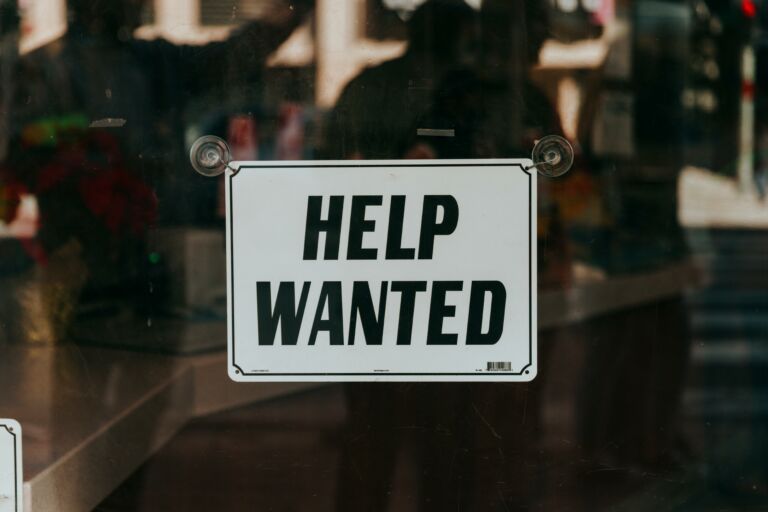- Growing government programs have contributed to the culture of dependency
- Entrepreneurial individuals, not the government, are the engine of a prosperous society
- Individuals risking their own wealth to pursue a profit have benefited the poor far more than any government welfare
I recently listened as a friend voiced frustration that she was not paid her worth. She believed that her occupation, in retail, was not as valued as it should be and that it was as worthy as any other employment. If only she could move to a nation with universal healthcare, then she would be more financially secure.
Who was responsible for this injustice? Capitalism. It was as if some higher power had a personal vendetta against retail and chose to pay my friend a lower wage.
But that is not how a free market works. The beauty of the market is that you can choose your career path based on what you value most. Each market participant has the opportunity to provide for themselves and their families and may use their earnings in any way they choose. There may be benefits to taking a traditional, nine-to-five job (stability in pay, health and retirement benefits, reliable schedule, etc.). In the same way, there are many benefits to hourly, seasonal, and temporary employment (flexibility in schedule, overtime pay, etc.). The opportunity lies with the decision-maker, and the government should get out of the way.
The beauty of the market is that you can choose your career path based on what you value most.
The dangerous tenet held by my friend, however, was that she was owed something by the government that she could not achieve in the market.
But the reality behind this notion of being “owed” something by government is that other individuals must be compelled to provide my friend’s preferred benefits, not some faceless system.
Some people in society no doubt need help to provide for themselves, and others may be entirely dependent upon others. Free association allows charity, investors, and even financial institutions to assist those in need. Alternatively, provisions may also come from the government – but every dollar of government welfare is first taken from others under threat of punishment.
Charitable action is often mutually beneficial in that not only does the recipient benefit, but also the giver benefits from satisfying an altruistic desire to help those in need. Conversely, government support is a zero-sum game, at best.
The resources for any of the provisions, no matter how they are provided, come from the same place: individuals.
Individuals drive a prosperous and productive society. In a free market system, individuals risk their own resources to earn a profit, and are free to choose how to direct their own labor and capital. What could be more empowering than using one’s ingenuity to address a societal need, pursue an interest, or provide for one’s family? And what claim do others have to the finances or other resources of these individuals?
Admittedly, not every job by every individual will be equally fulfilling or propel you into financial security. But each job is an opportunity to grow and to provide for oneself and one’s neighbors. Individuals in a free market are relentless in their pursuit of progress and greater economic opportunity for themselves and their loved ones.
On the other hand, government cannot create wealth. While government assistance may be necessary for certain circumstances, it can only come from money taken from workers (or printed, which erodes the value of workers’ paychecks). What government can do to help facilitate wealth creation, however, includes a credible and predictable protection of life, liberty, and property rights.
The rallying cry for more government programs is often with good intentions: help the poor, improve education, increase housing opportunity. Nevertheless, government handouts (of other people’s money) often cripple those they intend to help with a sense of helplessness and dependency. Government should fight to protect the right to provide for oneself – more than it fights to give others’ wealth to inefficient programs. Government can and should protect the opportunity to pursue wealth. It should govern with respect to that opportunity – and not create roadblocks by favoring some people’s pursuits at the expense of others.
Government handouts (of other people’s money) often cripple those they intend to help with a sense of helplessness and dependency.
Government programs are difficult to curb. Any aid from the government should only incentivize work. Otherwise, the assistance demeans the individual, smothers creativity, and creates an addictive reliance on help. Government restraint is vital because the money does not belong to bureaucrats and because power corrupts.
My friend is not alone in her belief that the government should do more for her. In fact, massive spending plans are moving through Congress that would “hook a lot of Americans into government dependency” under the guise of building “human infrastructure.” It is not the government’s job, however, to coddle working Americans with precious, limited resources. This dependency will only cause stagnation. A flourishing society, instead, is built when individuals are left to pursue any goal they choose.
Indeed, rising living standards for the poor can be attributed far more to those individuals engaging in risk in pursuit of profit than dependency-creating government welfare.
As North Carolinian Thomas Sowell stated, “It was Thomas Edison who brought us electricity, not the Sierra Club. It was the Wright brothers who got us off the ground, not the Federal Aviation Administration. It was Henry Ford who ended the isolation of millions of Americans by making the automobile affordable, not Ralph Nader. Those who have helped the poor the most have not been those who have gone around loudly expressing ‘compassion’ for the poor, but those who found ways to make industry more productive and distribution more efficient, so that the poor of today can afford things that the affluent of yesterday could only dream about.”


